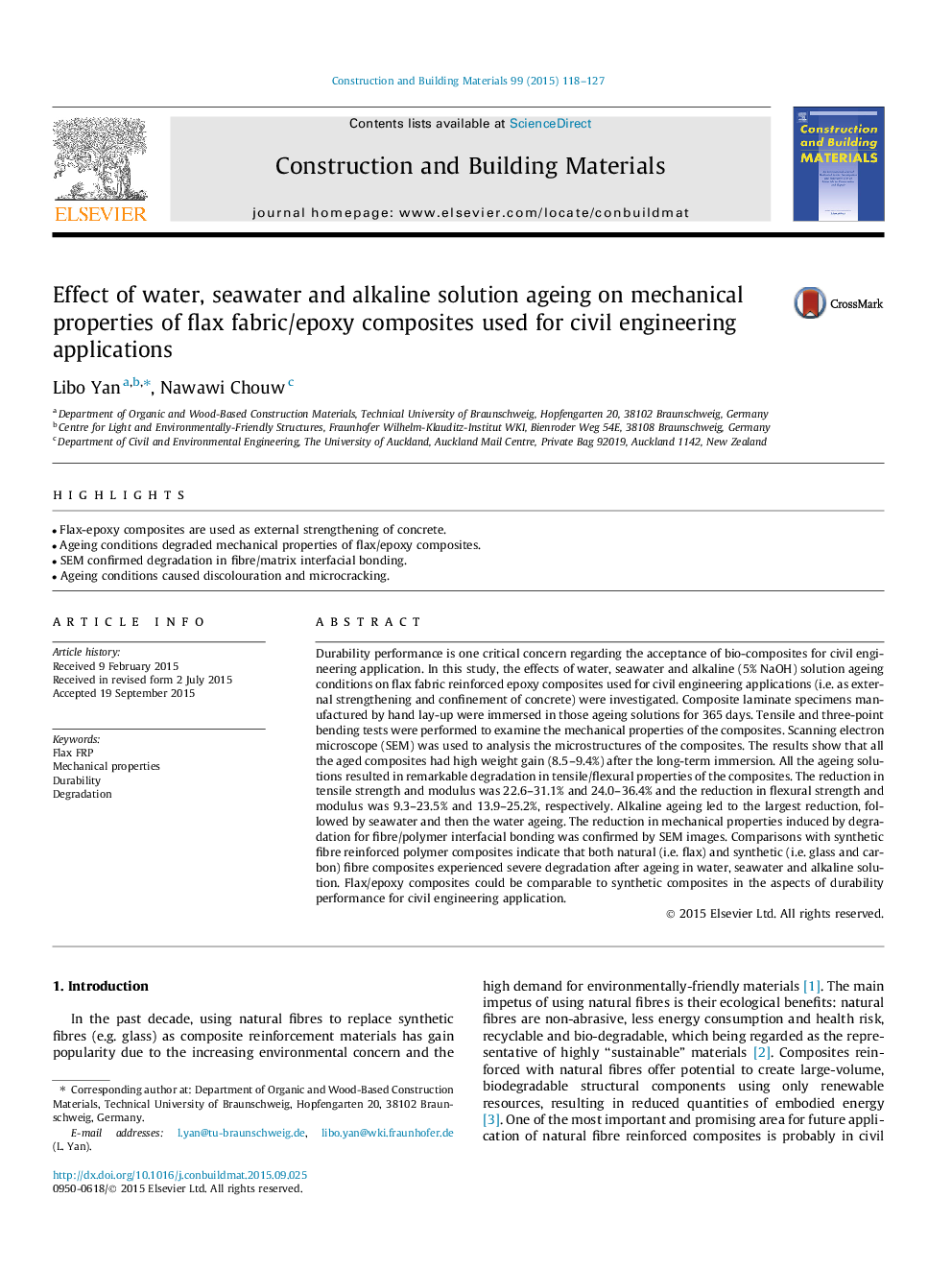| Article ID | Journal | Published Year | Pages | File Type |
|---|---|---|---|---|
| 6719817 | Construction and Building Materials | 2015 | 10 Pages |
Abstract
Durability performance is one critical concern regarding the acceptance of bio-composites for civil engineering application. In this study, the effects of water, seawater and alkaline (5% NaOH) solution ageing conditions on flax fabric reinforced epoxy composites used for civil engineering applications (i.e. as external strengthening and confinement of concrete) were investigated. Composite laminate specimens manufactured by hand lay-up were immersed in those ageing solutions for 365Â days. Tensile and three-point bending tests were performed to examine the mechanical properties of the composites. Scanning electron microscope (SEM) was used to analysis the microstructures of the composites. The results show that all the aged composites had high weight gain (8.5-9.4%) after the long-term immersion. All the ageing solutions resulted in remarkable degradation in tensile/flexural properties of the composites. The reduction in tensile strength and modulus was 22.6-31.1% and 24.0-36.4% and the reduction in flexural strength and modulus was 9.3-23.5% and 13.9-25.2%, respectively. Alkaline ageing led to the largest reduction, followed by seawater and then the water ageing. The reduction in mechanical properties induced by degradation for fibre/polymer interfacial bonding was confirmed by SEM images. Comparisons with synthetic fibre reinforced polymer composites indicate that both natural (i.e. flax) and synthetic (i.e. glass and carbon) fibre composites experienced severe degradation after ageing in water, seawater and alkaline solution. Flax/epoxy composites could be comparable to synthetic composites in the aspects of durability performance for civil engineering application.
Related Topics
Physical Sciences and Engineering
Engineering
Civil and Structural Engineering
Authors
Libo Yan, Nawawi Chouw,
